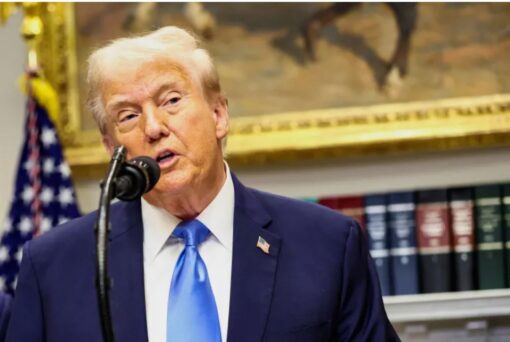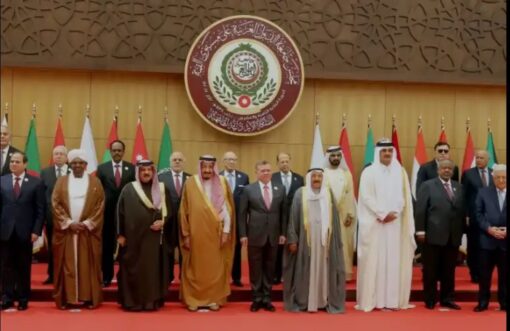President Donald Trump is preparing to unveil what the White House describes as a sweeping proposal aimed at halting the ongoing war in Gaza, with plans to present the initiative to key Arab and Muslim leaders in the coming weeks.
According to senior officials, the Trump Gaza peace plan will focus on creating a framework that addresses both immediate hostilities and longer-term political questions, including the future of Palestinian statehood and Israel’s security concerns.
The move highlights Trump’s determination to place the United States at the center of Middle East diplomacy as the conflict continues to escalate.
The Gaza war, marked by relentless bombardments, heavy civilian casualties, and rising international condemnation, has become one of the most urgent global challenges of Trump’s presidency.
Regional leaders, particularly in Egypt, Jordan, Saudi Arabia, and Qatar, have pressed Washington to use its influence to bring about a ceasefire and prevent further escalation.
White House aides say Trump views this as a moment to demonstrate decisive action, both on the international stage and to his domestic audience, where foreign policy credibility is seen as a key test of presidential strength.

“The President believes he can succeed where decades of diplomacy have stalled,” one senior adviser said. “The Trump Gaza peace plan is designed to bring Arab and Muslim leaders together with Israel to carve out a real path toward stability and humanitarian relief.”
According to early leaks, the plan is expected to include a temporary ceasefire of at least 60 days, a framework for the release of hostages, and the opening of humanitarian corridors into Gaza.
Trump will reportedly push for Gulf states to take a more active role in reconstruction efforts, using their financial resources to rebuild devastated areas while also pressing Hamas and other militant groups to disarm.
hi“The goal is to end the war quickly and prevent another cycle of destruction,” another senior U.S. official noted. “This isn’t about speeches or symbolism—it’s about practical steps.”
Arab diplomats briefed on the plan remain cautious. Some have welcomed Trump’s willingness to engage, but others worry the initiative could prioritize Israeli security demands while sidelining Palestinian political aspirations.
A senior official in Amman told reporters, “Any peace plan must deal with the core issue of Palestinian statehood. Without that, no temporary ceasefire will bring stability.”
Palestinian officials in Ramallah also expressed skepticism, warning that Trump’s track record—particularly his decision to move the U.S. embassy to Jerusalem earlier in his presidency—suggests his proposals may be weighted heavily in Israel’s favor.
Despite the doubts, there is growing recognition that international mediation is urgently needed. The humanitarian toll in Gaza has been devastating, with thousands killed, widespread displacement, and infrastructure reduced to rubble.
The United Nations has warned that conditions in the territory are nearing catastrophic levels, with limited access to clean water, food, and medical care.
“We are staring at a public health crisis on top of a humanitarian disaster,” UN relief coordinator Martin Griffiths said. “Any credible plan that halts the fighting and brings aid to civilians deserves serious consideration.”
White House officials insist the Trump Gaza peace plan will address humanitarian concerns in detail, proposing international oversight of aid distribution to ensure assistance reaches civilians rather than armed groups.
They also say the plan will call for renewed negotiations on Palestinian governance, though details remain vague. Critics argue that without clear commitments to political reform and a pathway to statehood, the plan risks being little more than a temporary truce.
The reaction in Israel is expected to be mixed. Prime Minister Benjamin Netanyahu, who has maintained a close relationship with Trump, may welcome the plan as a way to strengthen ties with Arab states and shift focus away from domestic criticism of his handling of the war.
However, hardliners within his coalition are unlikely to support any arrangement that includes concessions to Palestinian groups. Analysts say Trump will have to balance Israel’s security concerns with Arab demands for meaningful political progress if he hopes to gain traction.
For Arab and Muslim leaders, Trump’s overture comes at a time of heightened tension. Saudi Arabia, which has been exploring normalization with Israel, has paused those talks in the wake of the war, while Egypt and Jordan face rising domestic anger over civilian deaths in Gaza.
Qatar, which has acted as a mediator in previous ceasefires, may play a central role in shaping how Trump’s plan is received. A Gulf diplomat remarked, “if Trump’s proposal creates real space for de-escalation, leaders in the region will at least have to listen. But if it looks like a one-sided deal, it will collapse quickly.”
In Washington, reactions to the news of Trump’s diplomatic push have been polarized. Supporters hail it as evidence of his unique ability to break deadlocks, pointing to the Abraham Accords as proof of his success in Middle East diplomacy.
Critics, however, accuse him of exploiting the crisis for political gain. “This is classic Trump—using international conflicts as a stage to promote himself,” said Democratic strategist Angela Martinez. “But what Gaza needs is real diplomacy, not campaign theatrics.”
The Trump administration has framed the Trump Gaza peace plan as a demonstration of decisive American leadership, with Secretary of State Marco Rubio playing a central role in diplomatic outreach.
Rubio has already made several trips to the region, meeting with Israeli and Arab officials to lay the groundwork for Trump’s proposal. White House officials say the President’s direct engagement is designed to break through stalled negotiations, while Rubio’s shuttle diplomacy ensures regional leaders remain fully invested in the process.
Analysts argue the combined approach of Trump’s high-level involvement and Rubio’s hands-on diplomacy could either accelerate a breakthrough or expose just how difficult it remains to find common ground.

For ordinary Palestinians and Israelis, however, the focus remains on survival. In Gaza, families sheltering in overcrowded schools and hospitals say they desperately need a pause in fighting to secure food, medicine, and safety for their children.
In Israel, communities near the border continue to face rocket attacks, living under constant fear of escalation. “We don’t care whose plan it is,” said one Gaza resident reached by phone. “We just need the bombs to stop.” An Israeli mother in Ashkelon voiced similar exhaustion: “We want peace, but every plan feels like another empty promise.”
As the Trump Gaza peace plan prepares to be presented, the stakes could not be higher. If accepted, it could create a fragile but vital window for humanitarian relief and diplomacy.
If rejected, the war may grind on with even greater devastation. For Trump, the outcome may shape his legacy on the global stage as much as it affects his political fortunes at home.
For millions of people living under fire, the hope is that the plan will deliver more than rhetoric and bring a measure of relief to lives shattered by war.


